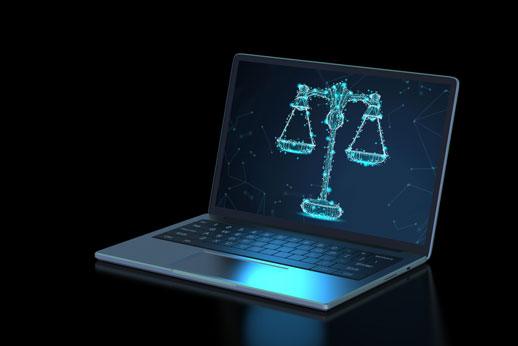
- It seems as if it was only a few years ago that cyber law was thought of as part of a plot in a science fiction novel.
- But now, as tech savvy users, we’re finding cyber law in almost everything we do online and in other instances in which technology is utilized.
- If you are an attorney interested in the cyber law practice area, you should learn about these 5 aspects of cyber law.
As we continue to use the internet, the plethora of sites and social media found on the internet, not to mention other forms of technology, we find ourselves also relying increasingly on cyber law.
Cyber law seeks to reign in the ever-morphing existence of technology to make it fairer and even between one user and the next. In and of itself, cyber law is quite new as a practice area, which means it is fluid. In short, the cyber law practice area has the potential to be very exciting and innovative.
But first, here are 5 aspects of cyber law you should be familiar with if you want to enter its practice area.
- What is Cyber law?
Cyber law otherwise known as “internet law” is the area of law that regulates how people use the internet. There are cyber laws that are criminal laws and there are cyber laws that are civil laws. Any law or regulation that involves how people use computers, smartphones, the internet and other related technology is cyber law.
Cyber law is also called digital law. As technology changes, the laws that govern electronic communication change, too. Cyber law encompasses all of the ways that people use modern technology to interact and communicate.
- What Types of Law does Cyber Law Encompass?
Cyber laws serve a variety of purposes. Some laws protect people from becoming the victims of crime through unscrupulous activities on the internet. Other laws create rules for how individuals and companies may use computers and the internet. These laws cover a wide range of topics and activities, but they all fall under the wide category of cyber law. The major areas of cyber law include:
- Fraud
- Copyright
- Defamation
- Harassment and Stalking
- Freedom of Speech
- Trade Secrets
- Contracts and Employment Law
- Domain Disputes
- Future Topics and Issues
Cyber law topics and questions continue to grow and change. Lawmakers and business leaders continue to discuss and debate how individuals and corporations should be allowed to use the internet. For example, net neutrality is a subject of ongoing public debate. Cyber attorneys may advocate for their clients by approaching lawmakers to explain their position and ask for laws that work to their favor. Other cyber lawyers may represent public interest groups. Cyber lawyers are part of the ongoing discussion about what the laws should be in this area of law.
- Jurisdictional Challenges in Cyber Law
Cyber law often presents jurisdictional challenges. Jurisdiction is the question of what court has authority to hear the case. Where a person makes a statement in one jurisdiction and a person reads or hears it in another, it creates a question of where to bring litigation. When crimes occur, it may be hard to even figure out where a defendant committed a crime. There may even be difficulties working between states or countries to bring litigation. Cyber lawyers must navigate all of these challenges to effectively pursue their case on behalf of the public or the client.
- Who Practices Cyber Law?
The cyber law practice involves many types of practices and specializations. They work at small, medium and large firms. They work in private practice, and they work for the federal government.
Government attorneys may work as criminal lawyers, or they may work for an agency that develops and enforces civil laws. Federal prosecutors may bring charges of federal cyber law violations. State attorneys general and local prosecutors also bring charges of violations of cyber law. In addition to criminal attorneys, government attorneys may work for agencies that enforce cyber laws and help the public use the internet in safe ways.
Conclusion
Cyber law is a challenging and developing area of law. Cyber lawyers often work on cases that are extremely important for their clients. Creating privacy and security policies for a major company impacts the entire welfare of a company. One breach can damage a company’s profits and hurt their public image.
Domain disputes, employment disagreements and contract disputes are often high stakes. For lawyers who want to work on high-profile cases or cases where there’s a lot of money on the line, cyber law may offer the opportunity.
Because cyber law is still developing, there are ongoing debates about what the laws should be and how they should be enforced. Lawyers who want to impact laws and policies may enjoy having their say. The area of law also welcomes both litigators and transactional lawyers with a wide variety of practice strengths and interests.




